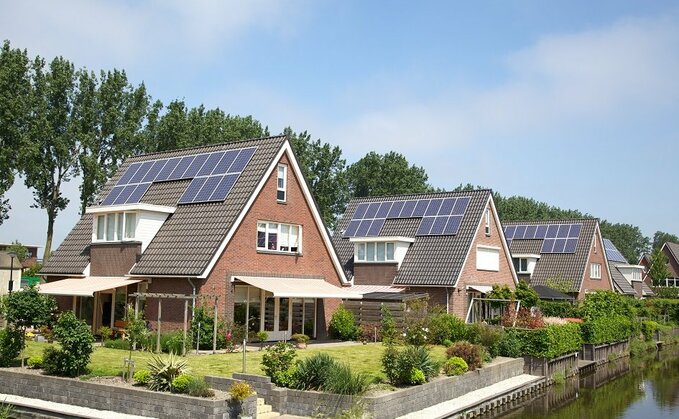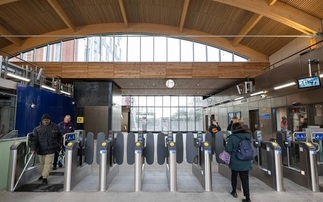
Industry Voice: The buildings in which we live and the energy they consume play a fundamental role in the process of decarbonisation, according to Schroders
From the use of renewables such as solar power to the latest technologies, including heat pumps and smart meters, the homes of the coming decades will need to become net zero. This is important for both environmental reasons, so as to keep global warming below 2C - and for social reasons, given the volatility of oil and gas prices.
Following Russia's invasion of Ukraine, the European Commission has launched the ‘REPowerEU' initiative. Among many urgent calls to cut European dependence on Russian fossil fuels, the initiative asks households to power up on more rooftop solar panels, heat pumps and energy savings.
Buildings remain the largest energy consumers in Europe, making up 40 per cent of the total energy used, and emitting 36 per cent of greenhouse gas as most of them are still powered by fossil fuels, according to the EU Commission.
Put together, heating, cooling and domestic hot water are responsible for 80 per cent of the energy consumed by households. That is why one of the targets of the 'European Green Deal' is that by 2050 all existing buildings in Europe that are currently not energy efficient need to become climate neutral.
Last December, the EU Commission said it wanted to move this target date forward, asking all new buildings to be zero emissions by 2030, while offering various incentives and requiring new energy performance standards. At the same time, countries will be financially discouraged from using gas boilers in buildings, and will have the power to ban the use of fossil fuels altogether.
For older buildings, retrofitting a home is not an easy task, but it is essential to achieve these targets. For example, less than two per cent of UK homes have any form of low carbon heating, but by 2050 the government wants to install over 19 million heat pumps across the country.
Alexander Monk, Portfolio Manager, Global Resource Equities, said:
"Decarbonising homes is a very important task in the energy transition process. Governments around the world are already starting to make some significant changes in order to help our homes become net zero. When it comes to heating, many new homes in the UK and Europe will be required to change their gas boilers to electric heat pumps by 2030."
"Still, retrofitting existing homes is much harder, as a large majority of our homes still uses gas-fired boilers. Green hydrogen produced from renewables, although is still in an experimental phase, is a potential solution: solar energy can produce hydrogen, which can then be stored and converted back to electricity. A home in 2030 can become completely detached from traditional fuels and in turn benefit not only the environment, but also household bills."
The infographic below shows what role a ‘net zero' home has in the energy transition and the opportunities this brings to investors.
Read more sustainability insights from Schroders >
This article is sponsored by Schroders.
Valentina Romeo is an investment writer at Schroders.







